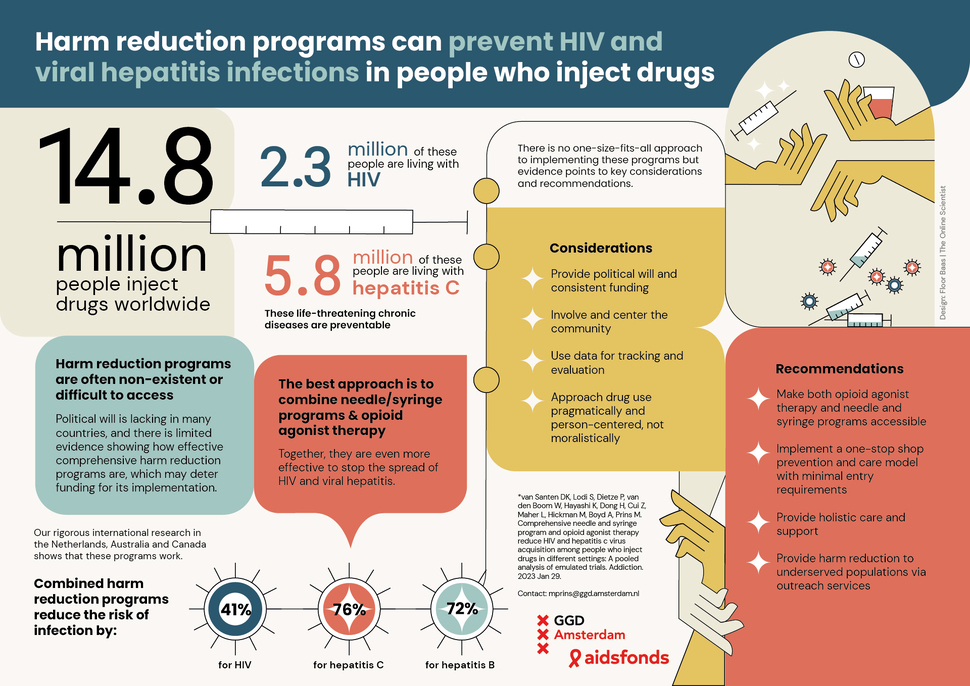Harm reduction works: actionable evidence that comprehensive harm reduction programs substantially reduce new HIV and viral hepatitis infections among people who inject drugs.
Onderdeel van
Trefwoorden
This policy brief was developed to highlight our new research using novel methodologies and data from three cities, Amsterdam, Vancouver and Melbourne, showing that dual engagement with needle and syringe exchange and opioid agonist therapy programs reduced the risk of HIV infection by 41% and the risk of hepatitis B and C infection by 76% and 72%, respectively, when compared to no or suboptimal engagement to these programs. This brief was developed by the Public Health Service of Amsterdam (GGD Amsterdam, the Netherlands) with the support of the Burnet Institute (Australia), the British Columbia Centre on Substance Use (Canada), our advisory board and our funder, Aidsfonds.

Summary policy brief ‘Harm reduction works'
We believe this brief provides valuable insights on the current landscape in three countries and potential policy consideration and recommendations in relation to harm reductions programs. This policy brief can be particularly useful for those seeking robust evidence-based interventions to curb the HIV and viral hepatitis epidemics among people who inject drugs and recommendations for its implementation.
This is the first study of its kind, and the methodology enabled us to get as close as possible to determining the dual impact of these harm reduction programs on infection outcomes. Below you will find the policy brief (including an executive summary of the study) and factsheet for your consideration.
If you have any questions or remarks, please contact Maria Prins, Prof. of Public Health and Epidemiology of Infectious Diseases at mprins@ggd.amsterdam.nl
Harm reduction works
Van Santen DK, Lodi S, Dietze P, van den Boom W, Hayashi K, Dong H, Cui Z, Maher L, Hickman M, Boyd A, Prins M.
Comprehensive needle and syringe program and opioid agonist therapy reduce HIV and hepatitis c virus acquisition among people who inject drugs in different settings: A pooled analysis of emulated trials. Addiction. 2023 Jan 29.
This brief was developed by the Public Health Service of Amsterdam (GGD Amsterdam, the Netherlands) with the support of the Burnet Institute (Australia), the British Columbia Centre on Substance Use (Canada) and our funder, Aidsfonds.